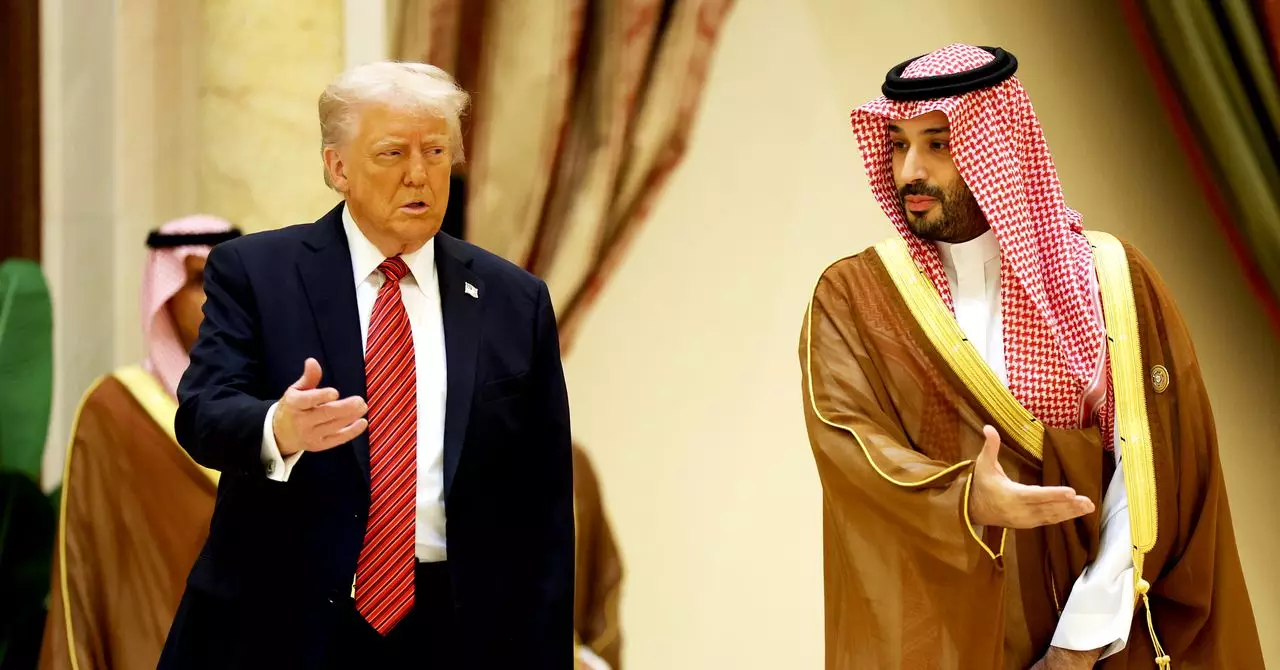The global landscape of artificial intelligence is undergoing a seismic shift, driven by rapidly evolving technology and strategic partnerships. Recently, a high-profile jaunt to the Middle East by former President Donald Trump came to symbolize this changing dynamic. Accompanied by a coterie of billionaire tech entrepreneurs and backed by fighter-jet escorts, Trump took the opportunity to forge ground-breaking partnerships that could redefine international cooperation in AI.
The UAE’s Ascent in AI Technology
At the crux of this monumental tour was the final destination: Abu Dhabi. Here, Trump announced a historic collaboration that would pave the way for the creation of the largest AI data center cluster outside of the United States. In a partnership with G42—a prominent Emirati technology company—unnamed U.S. firms will contribute to developing an astonishing five gigawatts of AI computing capacity in the UAE. With ambitions of positioning the nation as a leading research hub, Sheikh Tahnoon bin Zayed Al Nahyan has been clear in his vision: this initiative will contribute significantly to global sustainability and transform the landscape of AI advancements.
Such grand plans are not merely symbolic gestures but strategic moves in a realm where technological superiority holds the key to economic influence. In a world where data is the new oil, the UAE is actively positioning itself as a vital player. The $1.5 trillion fortune championed by Sheikh Tahnoon underlines the seriousness of these aspirations, steering towards advanced technology that promises transformative benefits for humanity—an evolving narrative that seeks to merge economic ambitions with global welfare.
Saudi Arabia’s Bold AI Ventures
Moving from the UAE to Saudi Arabia, Trump’s visit coincided with a monumental announcement from the Kingdom. The introduction of Humain, an AI investment firm backed by the Public Investment Fund, underscores Saudi Arabia’s strategic intent to leap into the high-tech space, showcasing blockbuster deals with titans like Nvidia, AMD, and AWS. This ambitious infrastructure aims to not only bolster the Kingdom’s technological capacity but also fortify its geopolitical stature amidst a complex international landscape.
As advancements unfold, deals are reported to amount to hundreds of billions of dollars across sectors such as infrastructure, technology, and defense. Paul Triolo, a partner at DGA-Albright Stonebridge Group, succinctly encapsulates the significance of these developments: enhanced access to artificial intelligence hardware will propel Saudi Arabia into a major player on the global AI stage. The implications of such enhancements cannot be overstated.
The Hardware Arms Race in AI
The cornerstone of these ventures is AI training capabilities, where Nvidia’s impressive offerings dominate the market. Specific contracts estimated at 500 megawatts of capacity demonstrate the seriousness of Saudi Arabia’s commitment, anticipated to involve hundreds of thousands of Nvidia’s most advanced GPUs. This technological prowess could enable Saudi Arabia to create pioneering AI models, significantly impacting both local and global markets.
Additionally, AWS’s joint investment to develop a dedicated AI infrastructure zone reflects a collaborative spirit that transcends borders. The integration of $5 billion from AWS alongside other partnerships forms an ecosystem designed for rapid technological advancement. As these infrastructures solidify, they offer a stepping stone for the Kingdom to realize its long-term vision of a more sophisticated economy.
Regional Ambitions vs. Global Politics
One cannot overlook the vast financial resources that oil-rich nations possess. Saudi Arabia, the UAE, and similar countries are keenly aware of the stakes involved in fostering high-tech economies. However, their relationships with China, notably in technology transfers, introduce layers of complexity into these collaborations. As geopolitical tensions mount, especially surrounding cutting-edge AI technology, these nations find themselves at a crossroads—balancing rich partnerships with both the U.S. and China.
Trump’s administration’s recent reversal of Biden-era restrictions on chip sales illustrates a pivot to encourage U.S. dominance in the global tech arena. By removing barriers that could have limited the sale of advanced chips to the Middle East, the U.S. government sends a message: American innovation must thrive, and partnerships with nations like Saudi Arabia and the UAE are essential to securing that future.
Trump’s Middle East expedition wasn’t merely a diplomatic mission; it encapsulated a critical juncture in global AI development. The collaborative efforts among the U.S., the UAE, and Saudi Arabia hint at a future where strategic alliances redefine the tech landscape. The blend of geopolitical considerations and financial investments in AI positions these nations to not only enhance their technological capabilities but also to solidify their roles in the global race for AI supremacy.

